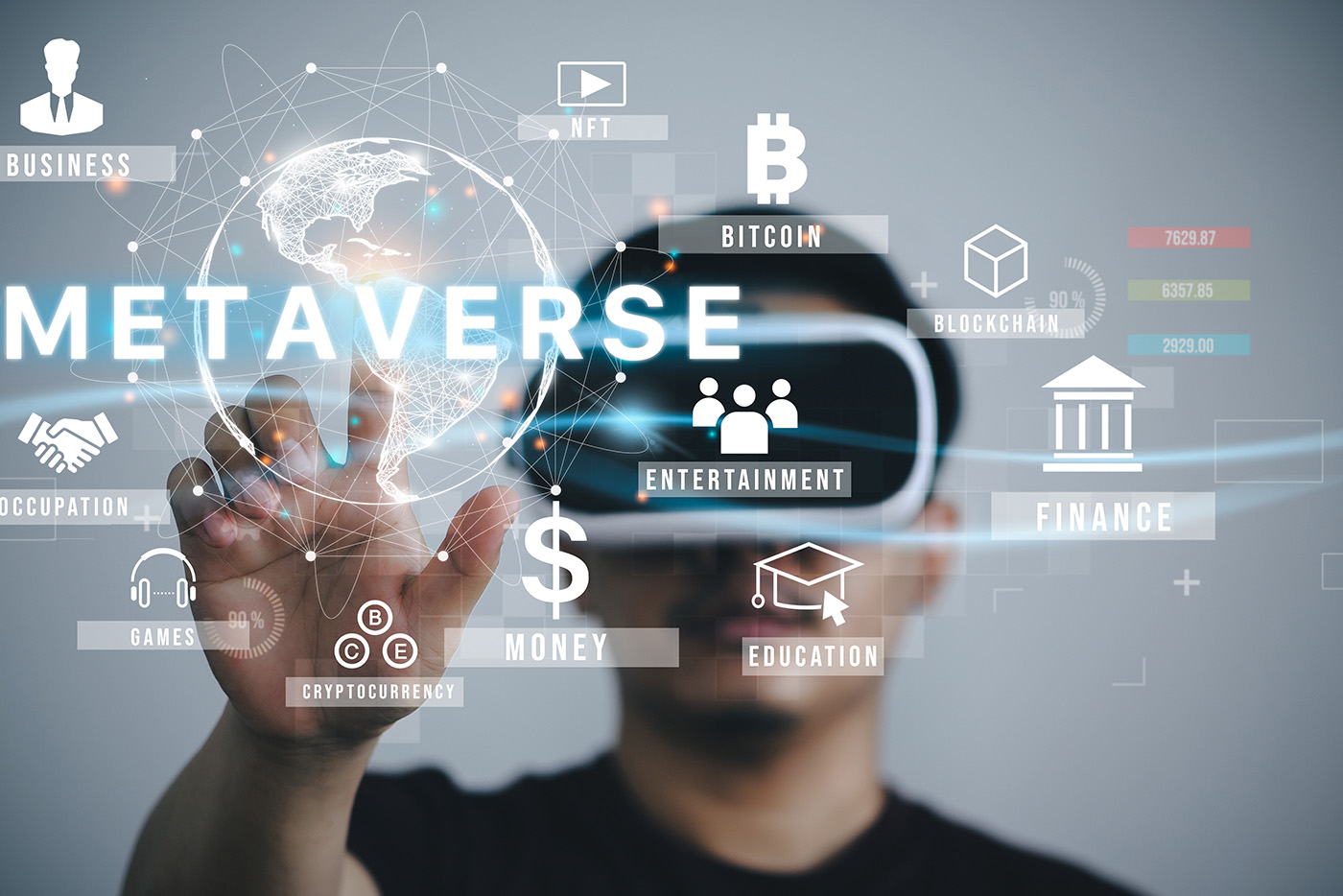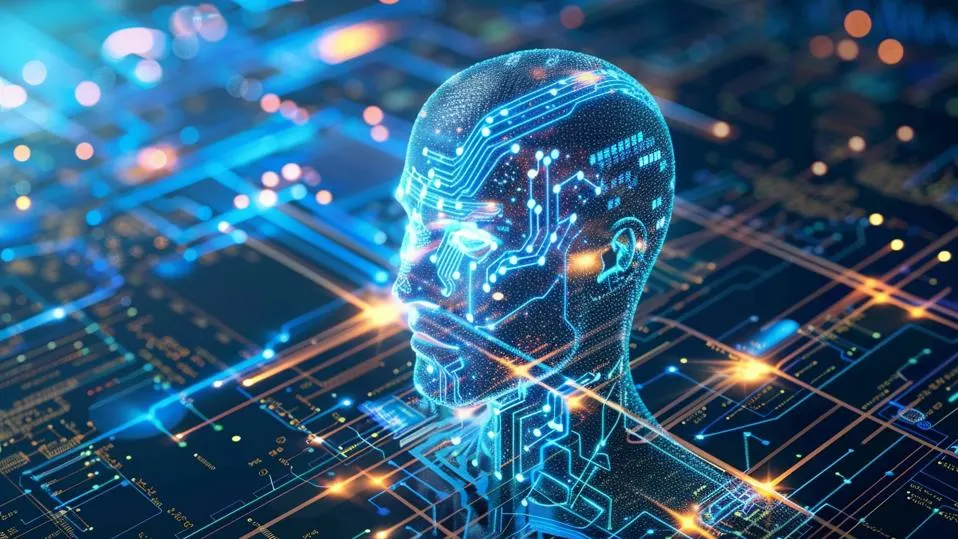The Top 5 Metaverse Trends In 2023
31 October 2022
During 2022 it was hard to move without bumping into the term “metaverse.” Following Facebook’s rebranding at the end of 2021, just about everyone was keen to let us know about their vision for digital worlds where we can work, play and socialize on one persistent platform.

Anyone who has been paying attention, however, will have realized that these visions often differ greatly. While Meta focuses on creating virtual reality environments, companies like Microsoft and Nvidia are developing metaverse environments for collaborating and working on digital projects. At the same time, those who believe the future of the internet is decentralized and built on blockchain are experimenting with non-fungible tokens (NFTs) to enable ownership of digital assets and decentralized autonomous organizations (DAOs) designed to bring digital democracy to the virtual worlds we inhabit.
With the metaverse concept predicted to add $5 trillion to the value of the global economy by 2030, there’s everything to play for, and 2023 is likely to be a key year for defining the direction it will take.
Metaverse as a new marketing channel
As with search engines and social media (the technological enablers of web 1.0 and 2.0), marketing and advertising will provide the fuel that will boost web 3.0 - the metaverse - into the mainstream. The concept may not have completely coalesced yet, but businesses from giants of international finance like HSBC and JP Morgan to global lifestyle and fashion powers like Nike and Gucci have already staked their claim and begun building their metaverse presence. The appeal is obvious – we know that consumers are always looking for new and more engaging ways to connect with brands they want to do business with. The metaverse, with its focus on customer experience and one-to-one connections, is another channel of communication. Crucially, it’s one where, unlike social and search, which are pretty well sewn up by the likes of Google and Meta, there is still everything to play for. Over the next 12 months, businesses will be going all-out to position themselves at prime virtual locations – whether that's through building their own platforms or occupying existing arenas such as Meta Horizons, Fortnite, VR Chat, or Decentraland. No one knows for sure what the winning strategy will be yet, but one thing is for certain – you’ve got to be in it to win it.
The Corporate Metaverse
Aside from its power as a marketing tool, the metaverse promises to provide platforms, tools, and entire virtual worlds where business can be done remotely, efficiently, and intelligently.
We can expect to see the metaverse concept merge with the idea of the “digital twin” – virtual simulations of real-world products, processes, or operations that can be used to test and prototype new ideas in the safe environment of the digital domain. From wind farms to Formula 1 cars, designers are recreating physical objects inside virtual worlds where their efficiency can be stress-tested under any conceivable condition without the resource costs that would be incurred by testing them in the physical world.
Another use of metaverse technology in the corporate world will be conducting training, onboarding, and other tasks. For example, consulting giant Accenture created a metaverse environment called The Nth Floor that features replicas of real-world offices and lets employees and new hires conduct a number of HR-related functions within the virtual world.
Metaverse collaborative working environments such as BMW's augmented reality labs that are used to design and prototype new products will also become more popular as teams investigate new methods of working remotely while remaining engaged with colleagues and their creative process.
Web3 and decentralization
One vision of the shape that the metaverse will eventually take revolves around decentralization. According to the proponents of web3, distributed ledgers and blockchain technology will give rise to a new internet outside of the control of global corporations, which will no longer hold the power to censor opinions they don’t agree with or pull the plug if they want to take someone offline entirely. This vision is built around decentralized metaverse platforms such as The Sandbox and Decentraland, which will eventually be organized as DAOs. Buying ownership rights will give individuals a say in the way that the organization building the virtual domain is run, which will eventually lead to the establishment of virtual democracies and user-owned communities.
NFTs are another aspect of the decentralized metaverse. These are unique tokens that live on blockchains – just like non-unique tokens such as cryptocurrencies like Bitcoin do – and can be used to represent unique online goods or commodities. Brands, including Nike, Adidas, and Forever 21 have used this technology to create digital goods that can be worn, traded, and displayed by their owners in the metaverse. Another footwear brand, Clarks, recently unveiled an online tournament using the Roblox platform where users can win unique virtual goods.
The vision of the metaverse as a decentralized, community-owned utopia is somewhat at odds with the vision promoted by companies like Meta and Microsoft, which are aiming to build proprietary digital universes where they themselves will have absolute control. 2023 is likely to bring further interesting developments in this clash of digital cultures.
Virtual and augmented reality
The idea of immersive, experiential technology is central to the metaverse – whatever it ends up looking like, it will be more engaging than the digital worlds we are used to today (such as Facebook or the World Wide Web). Therefore, many ideas of how we will interact with it involve immersive technology such as virtual reality (VR), augmented reality (AR), and mixed/extender reality (MR/XR).
Meta has built its specific vision of what the “next level” of the internet will look like around virtual reality, and 2023 will bring new versions of its hugely popular Quest VR headsets, as well as new VR/AR/MR headsets from companies such as Apple, Google, and Microsoft. Not everyone agrees that entering the metaverse will require us to fix displays to our heads, but it's certainly one of the approaches to building immersive experiences which are generating the most excitement, and 2023 will bring a host of new developments in the field. Beyond headsets, we can expect to see new developments in full-body haptic suits, which are already used by organizations like NASA and SpaceX for simulating extreme environments but will also be used to create consumer metaverse experiences that are even more realistic and immersive. Several startups are even experimenting with technology that’s able to introduce smells to our virtual experiences!
More advanced avatar technology
Many ideas of what the metaverse will involve us adopting avatars that represent us in the digital world. Just as we are used to playing characters in video games or expressing our persona in social media, the avatar is the presence that we project as we engage and interact with other users – they might look like us, or like cartoon characters, or like something completely fantastic that could never exist in the real world!
Meta originally offered only very basic cartoon-like avatars – which were widely ridiculed – but more recently has developed almost photorealistic technology that will allow us to look almost exactly like we do in the real world. Other technologies, such as Ready Player Me and Zepeto, let us create avatars that can then be dropped into a number of different virtual worlds and environments rather than restricted to a particular platform. In 2023, I predict that we will see more advanced use cases for technology such as motion capture, which will mean that as well as looking and sounding more like us, our avatars will adopt our own unique gestures and body language. We may even start to see further developments in the fields of autonomous avatars – meaning they won't be under our direct control but will be enabled by AI to act as our representatives in the digital world while we ourselves get on with other, completely unrelated tasks.
Related Articles
The Third Wave Of AI Is Here: Why Agentic AI Will Transform The Way We Work
The chess pieces of artificial intelligence are being dramatically rearranged. While previous iterations of AI focused on making predictions or generating content, we're now witnessing the emergence of something far more sophisticated: AI agents that can independently perform complex tasks and make decisions.[...]
How Generative AI Will Change Jobs In Cybersecurity
Ensuring robust cybersecurity measures are in place is more important than ever when it comes to protecting organizations and even governments and nations from digital threats.[...]
Sign up to Stay in Touch!
Bernard Marr is a world-renowned futurist, influencer and thought leader in the fields of business and technology, with a passion for using technology for the good of humanity.
He is a best-selling author of over 20 books, writes a regular column for Forbes and advises and coaches many of the world’s best-known organisations.
He has a combined following of 4 million people across his social media channels and newsletters and was ranked by LinkedIn as one of the top 5 business influencers in the world.
Bernard’s latest book is ‘Generative AI in Practice’.






Social Media